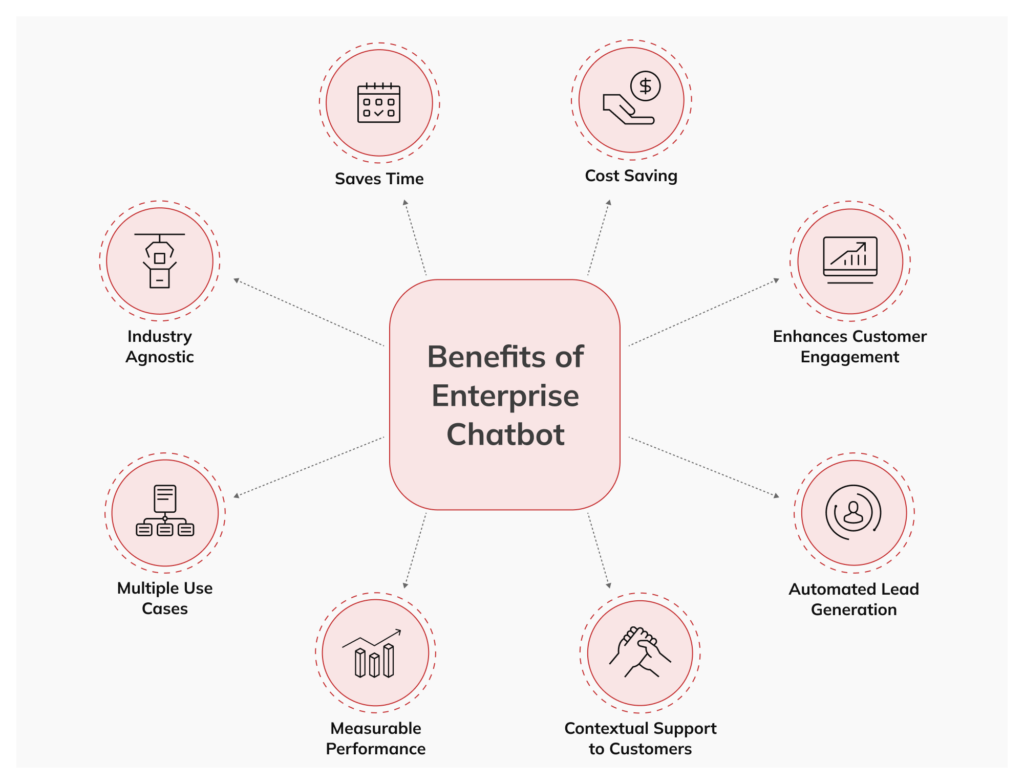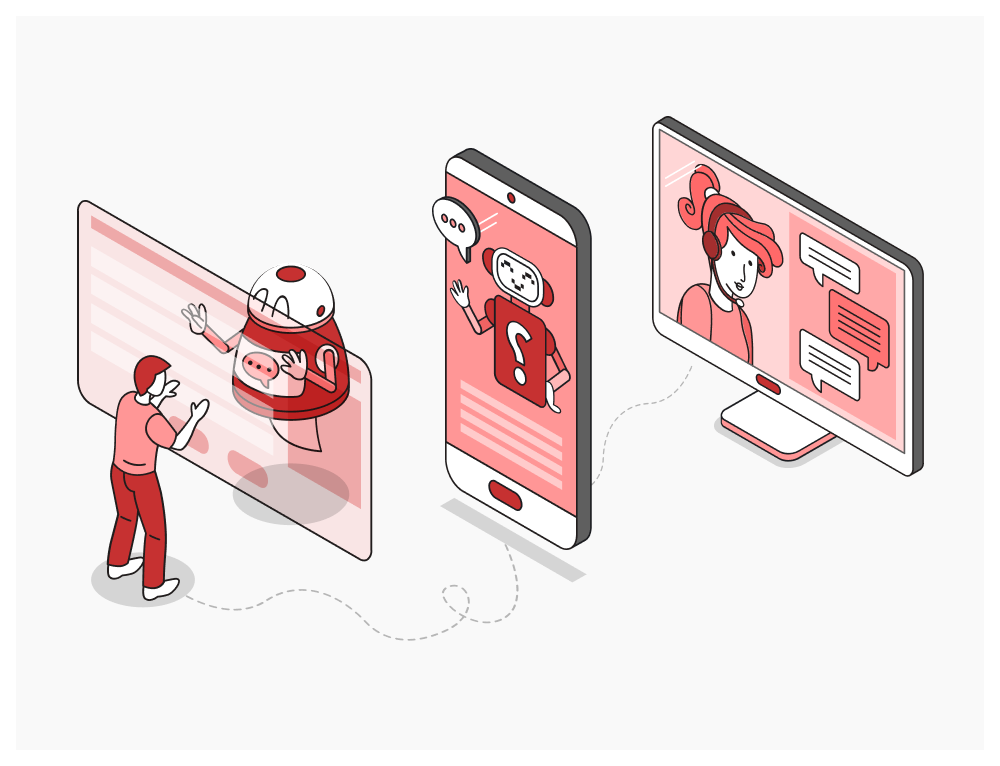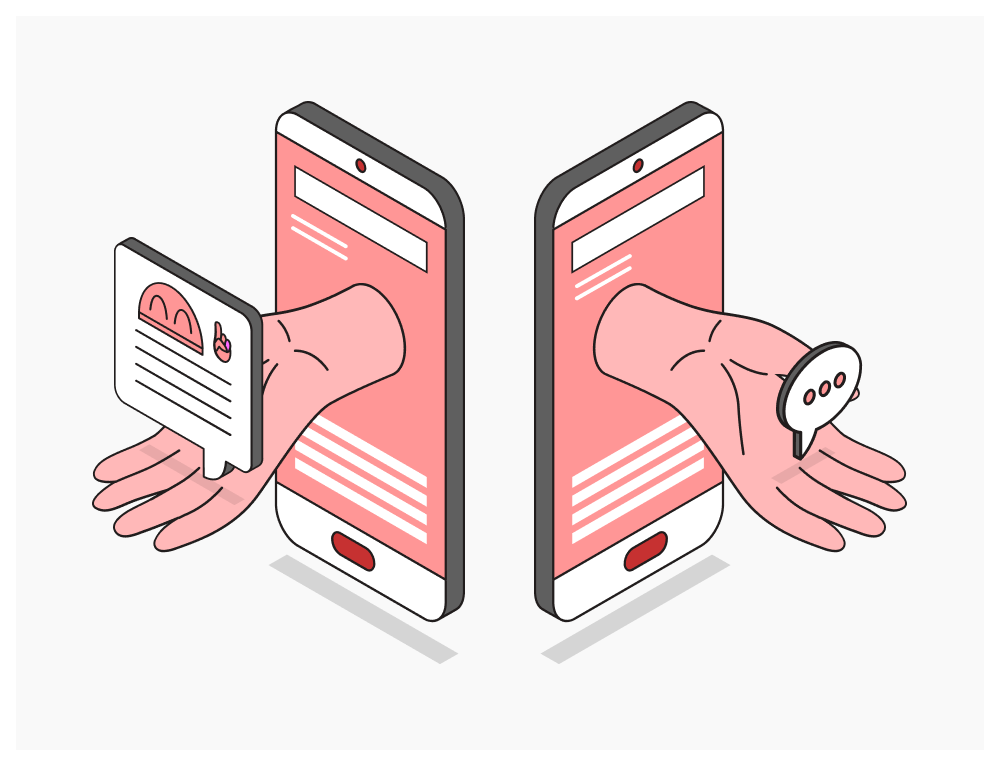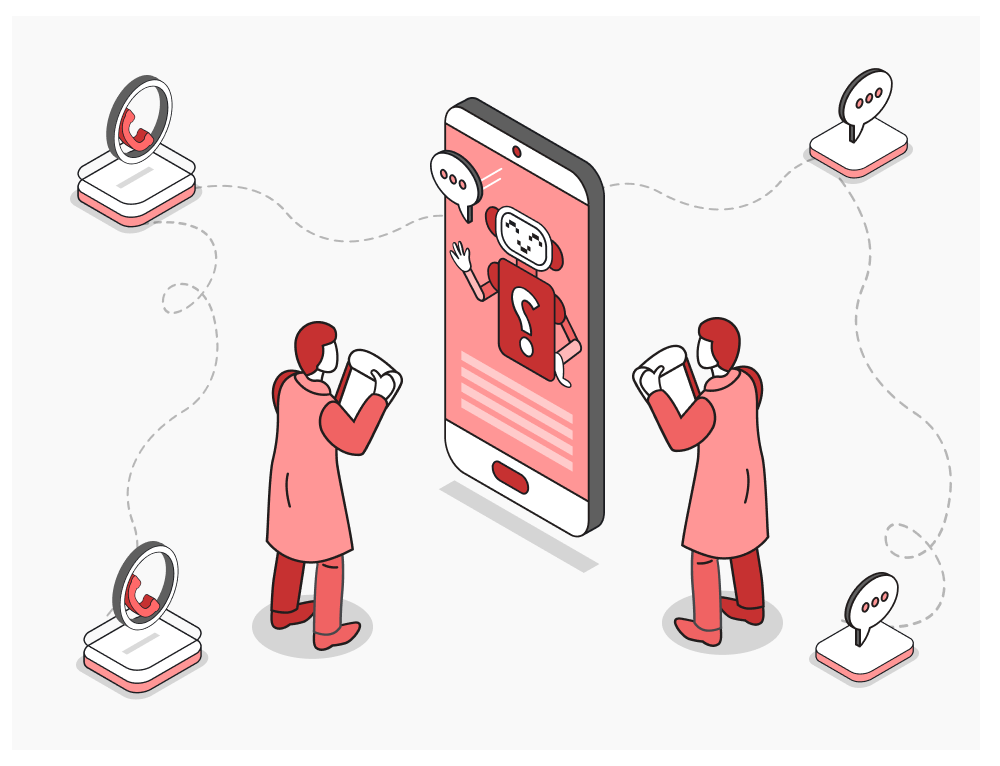Your message has been sent.
We’ll process your request and contact you back as soon as possible.
The form has been successfully submitted.
Please find further information in your mailbox.


For business owners and entrepreneurs looking to add an extra layer of customer service, the possibilities presented by enterprise chatbot development can be incredibly appealing. By leveraging automation technologies, companies can better interact with customers in real time and streamline mundane tasks that often require manual effort, freeing up valuable resources for strategic initiatives.
Chatbot development also has the potential to help businesses maximize efficiency, whether through reduced turnaround times or improved user engagement – making it a tool worth considering for any organization looking to reap the benefits of state-of-the-art technology. This blog post will provide a comprehensive guide on what factors must be considered when planning your enterprise chatbot platforms development strategy.

Virtual assistants have proved to be a major benefit for enterprises, offering staff support and automated services that can interact with customers without human intervention. They can handle many tasks, from lead generation to customer service and marketing services. Enterprises can choose from various available chatbot models, such as AI-powered bots, voiced assistants, text-to-speech bots, self-service bots, conversational AI bots, and hybrid chatbots – all of which provide an efficient way to automate conversations between customers and employees. These effective tools enable any business to quickly and accurately manage customer service inquiries, allowing them to focus on other areas of their operations for greater efficiency.
The use of bots is not just limited to customers but to employees as well. For instance, Innowise has created a corporate bot that assists with tasks like tracking progress on projects, creating reports, and requesting time off work. This type of technology makes it easier for employees to get the job done quickly, efficiently, and accurately – freeing up their time to focus on more important things!
Industries across the board are starting to benefit from integrating virtual assistants into their enterprise systems. By providing consumers a convenient way to communicate through natural language processing and machine learning, enterprises can quickly and cheaply provide automated customer service or transactional support.
With this technology getting smarter every day, it’s no surprise that more and more industries are beginning to recognize just how valuable enterprise chatbot solutions can be for their business operations.

With the help of conversational AI chatbots, media, and entertainment companies can enhance their brand and audience engagement, curate content easily, and utilize data to create memorable customer experiences. With these bots in charge, customers can instantly access personalized recommendations and offers by mentioning their query’s context. Moreover, they help save time when making reservations or finding events quickly.
Virtual assistants are a valuable asset to real estate agents, as they can provide quality customer service irrespective of working hours or when customers visit their website. These bots not only answer FAQs and help schedule viewings, but they can also build profiles of customers based on their preferences and send follow-ups in a professional tone. Furthermore, virtual assistants offer multi-platform support and extend services through social media channels like Facebook Messenger, Slack, and SMS messaging. This way, real estate agents can further improve the customer experience while growing their businesses.
By leveraging AI and NLP, virtual assistants offer personalized customer support with minimal effort. This allows customers to book reservations, receive tailored offers, and get prompt notifications quickly, resulting in an enhanced user experience and increased booking rates for companies across the hospitality sector.
Additionally, these automated solutions free up customer service teams to dedicate time to more complex tasks while simultaneously reducing costs associated with manual customer support. Thus, chatting bots serve as a powerful tool that allows businesses in the hospitality sector to maximize profit margins while delivering superior experiences for guests.
Chatting bot technology presents a novel way of streamlining healthcare services and cutting administrative costs. Powered by machine learning algorithms and natural language processing, virtual assistants can engage more efficiently with patients, quickly assess the situation, provide real-time assistance, and point them in the right direction for further care if necessary. In addition to their ability to process insurance inquiries and claims, many chatbots can even schedule appointments – making it much easier to manage post-discharge and rehabilitation care. Above all else, they are available 24/7, offering quick answers, guidance, or reassurance when needed.
A great virtual assistant is critical for any successful business. From speed and responsiveness to the ability to learn quickly, these are essential qualities for customer engagement and satisfaction. With multi-channel integration, omnichannel availability, and extensive customization capabilities, companies can cater the chatbot experience to a customer’s specific needs.
Additionally, with image recognition technology, mastering communication is easier than ever. However, the most important aspect of a successful chatbot may be the tone: professional yet friendly enough to understand the customer’s sentiment and respond in stride. With these features working in tandem, businesses can look forward to unprecedented data collection and customer service success.

Building an enterprise chatbot requires knowledge and expertise. Depending on the goals you have in mind and the project size, it may be necessary to put together a comprehensive development plan. This process typically starts by gathering requirements specific to your business model. Then, analyzing how virtual assistants are used in today’s market will help you determine the best tools and resources for creating a successful virtual assistant. From there, your team can evaluate the areas to focus on, such as natural language understanding and conversational design. Ultimately, all components established in this plan will help lead to the launch of a fully functioning enterprise chatbot tailored to assist customers in interacting with your brand more efficiently.

Although building a chatbot from scratch may be a daunting task, it is worth the effort for businesses that want to improve customer engagement and streamline their operations. Following the steps outlined in this guide, you can create a virtual assistant to help your business succeed. Innowise has extensive experience delivering AI chatbot development services, and we would be happy to help you with your project. Contact us today to get started!
Rate this article:
4.8/5 (45 reviews)












Your message has been sent.
We’ll process your request and contact you back as soon as possible.

By signing up you agree to our Privacy Policy, including the use of cookies and transfer of your personal information.